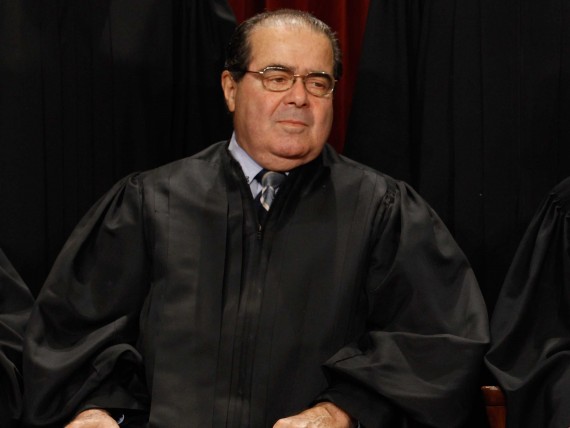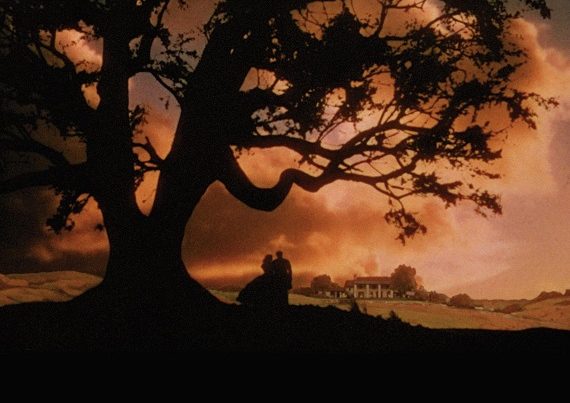With the recent passing of Supreme Court Justice Antonin Scalia, folks are writhing in fear over the prospect of Obama appointing a new SC Judge. “This”, they say, “could be the most monumental appointment in history and could drastically change our political landscape” and this “is especially true with regards to how the 2nd Amendment is interpreted.”
This is all true, if you buy into the erroneous notion that the Supreme Court is the final arbiter of constitutionality, and if the States do hot adhere to their duty, as Madison said, to “interpose for arresting the progress of evil” when a branch of the general government assumes powers never consented to it.
Scalia’s death has exposed what many who have studied the constitution’s history have said for years: That the court has assumed too much power in anointing itself -through “case law” and “court precedent”, rather than actual “constitutionalism”- as “the final say” on what the constitution means. This is not what the Founders intended, and it is not what the constitution allows.
The States are the parties to the compact (constitution) which formed the union, the States created the general government, and it is the States who thus created and determined the limits of the federal court. There is no indication whatever that the States intended the Supreme Court to have the final decision on constitutionality or that their word is the end of discussion. The very fact that “a balance of power” has existed on the Court is itself clear evidence that the system is not operating according to original intent, and that, rather than acting as a guardian of the constitution, it has instead become politicized.
If the Supreme Court is the final arbiter of constitutionality, said Thomas Jefferson, then “The Constitution……….is a mere thing of wax in the hands of the judiciary, which they may twist and shape into any form they may please.” The last 100 years of federal jurisprudence has proven Jefferson correct well beyond anything he could ever have imagined, and worse it is now assumed that the States created a “national” government and then allowed it, through the court system, the authority to determine the limitations of its own power. There is ample evidence from the Philadelphia Convention, the State ratifying conventions and post-ratification discussion that this simply was never the intent of the States. Such circumstances have come about by means of the Courts “granting” themselves this authority, and the States allowing them to get away with it. In Federalist 47, for example, James Madison wrote that “The accumulation of all powers legislative, executive and judiciary in the same hands, whether of one, a few or many, and whether hereditary, self appointed, or elective, may justly be pronounced the very definition of tyranny. Were the federal constitution therefore really chargeable with this accumulation of power or with a mixture of powers having a dangerous tendency to such an accumulation, no further arguments would be necessary to inspire a universal reprobation of the system.”
Over time, and especially since the “progressive” era, the Federal courts have assumed the role of a super legislature, deciding “constitutionality” based on legal precedent, sociological studies and even foreign law. They have unilaterally “found” unlimited powers for themselves that are nowhere apparent in the constitution. This has allowed them to intrude into State jurisdiction by “incorporating” the Bill of Rights against the States and striking down laws in matters that the constitution itself, in its original form, clearly “reserved to the States”. Moreover, the court has routinely rubber stamped all manner of unconstitutional actions by the President and Congress. As Kevin Gutzman pointed out in his book The Politically Incorrect Guide to the Constitution, between 1937 and 1995, not a single “law” passed by congress was deemed unconstitutional by the Supreme Court.
Even Madison, who in convention fought for a federal “negative” over State laws, as well as the application of the Bill of Rights against the States (he lost in both proposals) would regard such power being centered in an unelected body of nine people to be “the very definition of tyranny”. In the Kentucky Resolution of 1798 Jefferson wrote that- “the several States composing, the United States of America, are not united on the principle of unlimited submission to their general government; but that, by a compact under the style and title of a Constitution for the United States, and of amendments thereto, they constituted a general government for special purposes — delegated to that government certain definite powers, reserving, each State to itself, the residuary mass of right to their own self-government; and that whensoever the general government assumes undelegated powers, its acts are unauthoritative, void, and of no force.” Jefferson pointed out “that to this compact each State acceded as a State”. A “State” was a sovereign “Nation” in the vernacular of the pre-Lincolnian era, and few disputed this. Jefferson pointed out that each State as such “is an integral part” of the “compact” and thus the union, and that “the government created by this compact was not made the exclusive or final judge of the extent of the powers delegated to itself” as doing so “would have made its discretion, and not the Constitution, the measure of its powers”. “As in all other cases of compact among powers having no common judge” said Jefferson “each party has an equal right to judge for itself, as well of infractions as of the mode and measure of redress”.
The Founders, in adopting the constitution, instituted a union of sovereign republics and created a general government that was charged with specific, enumerated powers. This government was to be of “a republican form”, which means that, unlike a democracy, its actions are not conducted on the “will of the majority”, but by a “rule of law”. On the other hand, an oligarchy is defined as “a small group of people having control of a country, organization, or institution”. If the Supreme Court, made up of nine politically connected lawyers who are appointed, not elected, with life tenure are the “final say” on what the rule of law is, then it must be admitted that we’ve lapsed from republicanism to an oligarchical form of government.
This has occurred due to fact that the history of the formation of the union, the proper role of the Supreme Court and the separation of powers between the States and the general government are lost on the overwhelming majority of Americans today. We cannot enforce what we do not understand. Were this not the case, a “balance of power” on the Court would not exist, and every presidential election would not be “the most important in our lifetime” to “preserve our rights”………by a margin of one vote.







